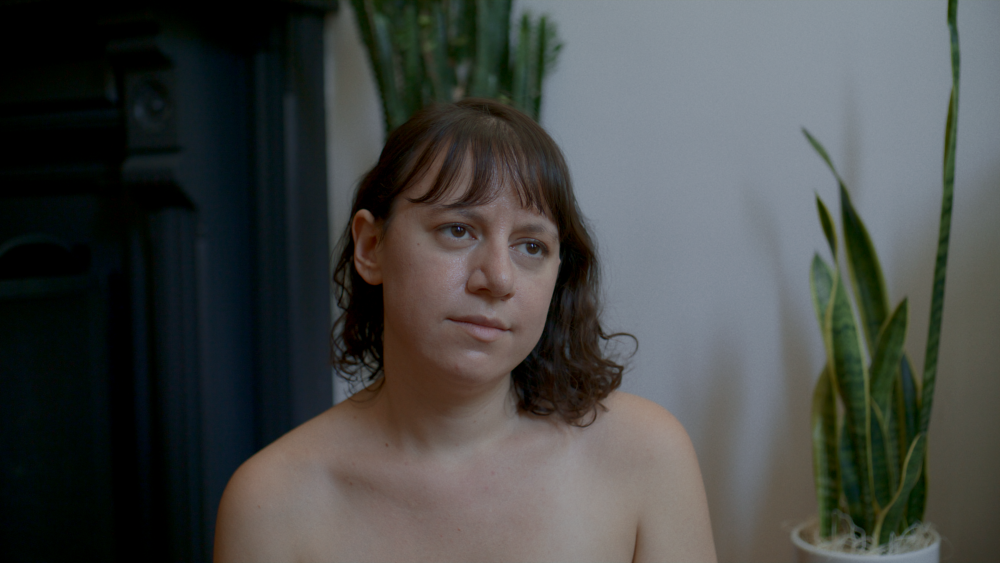Joanna Arnow on ‘Provocative’ Directors’ Fortnight Debut
Joanna Arnow is understandably stressed. The writer/director/actor is recovering from a long bout of COVID and about to premiere her narrative feature debut, “The Feeling That the Time for Doing Something Has Passed,” in the Directors’ Fortnight section at Cannes. “Having COVID while trying to finish this is such a crunch,” she says.
On the one hand, she shouldn’t be too worried. Indie film sensation Sean Baker is exec producing it, and she won a Berlinale Silver Bear Jury Prize for her 2016 short “Bad at Dancing.” Her semi- and fully autobiographical works have passionate admirers like Andrew Bujalski and Baker. “When he saw ‘Dancing,’ he wrote me a kind message about it and stayed in touch,” Arnow says.
But she also has detractors like New York Times critic Jeannette Catsoulis, who described Arnow’s 2013 autobiographical and darkly comic documentary “i hate myself :)” as “whiny,” and called her apparently emotionally abusive relationship with her then-boyfriend “a pretty standard sadomasochistic setup, only without the kinky accouterments.”
That may have been prescient. In “Feeling,” she portrays a glum New Yorker in an ongoing BDSM relationship with an older man, played by Scott Cohen (“The Americans”), along with other lovers. When asked to describe it in her own words, she mainly repeats the press notes’ description of her character’s “low-level corporate job and quarrelsome Jewish family.” The characters mainly speak with a flat affect and say exactly what’s on their minds, revealing the hidden meanings and absurdity behind normal conversations.
Why did Arnow cast her non-actor parents, seen in her 2013 doc recoiling from footage of her having sex, as her character’s parents? “They’re not playing themselves, but it’s reflective of the auto-fiction style of the film, with me playing a version of myself as well,” she says. “I like to make films that draw on personal experiences. I developed this deadpan, self-deprecating, humorous character [in ‘Dancing’], and playing a version of myself lent it a kind of authenticity and idiosyncrasy that was helpful.”
She has been compared to Lena Dunham, who also has an affinity for auto-fictional explorations of dysfunctional relationships, casting family members, onscreen nudity and using uncomfortable situations for comic effect, though Arnow’s previous films are clearly more surreal and experimental. “I admire [Dunham’s] trailblazing work, but think our work is very different and don’t really understand or appreciate the comparison,” she says. “I hope, as more women direct films, that will give other female filmmakers a broader group of women to be compared against. We also don’t only have to be compared to each other.
“I don’t try to be provocative for the sake of being provocative,” she adds. “The sexuality and nudity are used to explore aspects of being in a relationship, essential parts of the stories I’m trying to tell.” And if some find her characters annoying, that’s OK with her. “It’s important for people to be able to be depicted as flawed characters that don’t necessarily have to be ‘good,’ but portrayed on screen with a full range of humanity.”
A lifelong Brooklynite, Arnow studied film at Wesleyan, does freelance production work and recently left her day job at a pharmaceutical company. Her main goals? “I’d like to have a sustainable lifestyle as a filmmaker and writer that allows me to work on projects that I’m excited about.” She’s open to working on more mainstream films or TV shows in the vein of “The White Lotus,” and is looking for an agent.
“I think progress is being made for women and underrepresented groups in the film industry, but there’s a long way to go,” she says. “People weren’t beating down my door to fund my films, and it’s been a long road to getting my first feature. I hope [this film] contributes to a more varied representation [of women] in its own small way.”

